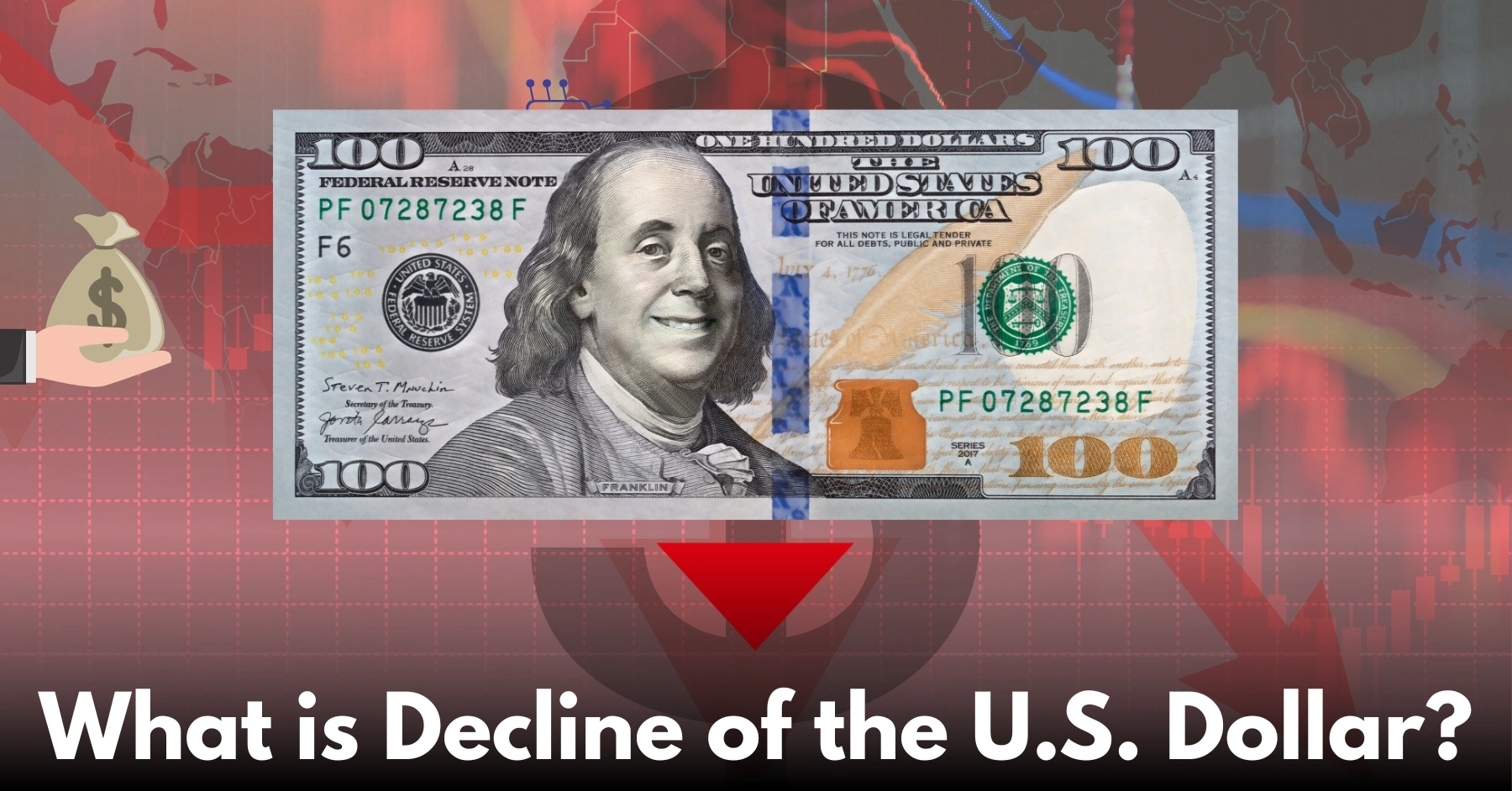What is Decline of the U.S. Dollar Dominance: A Global Shift in Currency Power
For decades, the United States dollar (USD) has held the title of the world’s most dominant currency. It has been the backbone of international trade, foreign reserves, and global finance. But over the past few years, that dominance is slowly being challenged.
Across the world, countries are gradually shifting towards alternative currencies for global trade. This movement is not just an economic adjustment—it’s a significant change that could reshape the future of foreign investment, global influence, and power dynamics.
In this article, we’ll explore what’s behind the decline of the U.S. dollar, who’s driving the shift, what it means for global markets, and why understanding this trend matters—even for students at institutions like YourPaathshaala in Raipur, Chhattisgarh.
💱 Why Was the U.S. Dollar Dominant for So Long?
To understand its the decline of the U.S. dollar, let’s first look at how the U.S. dollar became the most powerful currency in the world:
Post-WWII Agreements: The 1944 Bretton Woods Agreement pegged many world currencies to the U.S. dollar, which was in turn tied to gold.
Oil Trade in Dollars: Most global oil trades were priced in USD (called the “petrodollar” system).
Strong U.S. Economy: A stable government, powerful economy, and advanced financial systems kept the dollar strong.
Trusted Reserve Currency: Around 60% of all foreign reserves held by central banks globally are still in USD.
But now, the global economic landscape is shifting.
🌍 A Shift Toward Alternative Currencies
Countries around the world are starting to diversify their currency reserves and conduct international trade using alternatives to the U.S. dollar.
Some major developments include:
 China’s Push for the Yuan
China’s Push for the Yuan
China is urging oil and gas suppliers to accept Renminbi (Yuan) instead of dollars.
It’s forming deals with countries like Russia, Brazil, and Saudi Arabia to trade in local currencies.
 Russia Moves Away from Dollar
Russia Moves Away from Dollar
Due to sanctions, Russia has increased trade in Rubles, Yuan, and even gold.
Russia and China now conduct most of their trade without involving the USD.
 India and the Rupee
India and the Rupee
India is promoting Rupee trade deals with nations like the UAE and Sri Lanka.
This helps protect its economy from dollar volatility and improves trade balance.
🌐 The Rise of BRICS
BRICS nations (Brazil, Russia, India, China, and South Africa) are planning to launch a new common currency.
This currency could challenge the dollar in global trade, especially in the Global South.
🔄 Why Are Countries Reducing Dependency on the Dollar?
There are multiple reasons why nations want to shift away from the U.S. dollar:
1. Geopolitical Tensions
U.S. sanctions have pushed many countries to explore alternative systems.
Nations don’t want to rely on a currency controlled by a country that could restrict access.
2. Dollar Volatility
Fluctuations in the dollar affect global prices, especially in developing countries.
A strong dollar often leads to inflation in poorer economies.
3. De-dollarization for Sovereignty
Countries want to regain monetary control and strengthen their local economies.
Trading in local currencies helps stabilize foreign exchange reserves.
4. Rise of Digital Currencies
Central banks are launching Central Bank Digital Currencies (CBDCs) to offer faster, safer alternatives.
China’s digital Yuan is already being used in pilot programs for international payments.
📉 Impacts of the Dollar’s Decline
The decline of the dollar’s dominance doesn’t mean it will disappear overnight. However, its reduced role will have significant global consequences:
1. Foreign Investment Changes
Countries will diversify their reserves, affecting the demand for U.S. bonds.
This could make U.S. borrowing more expensive.
2. Weaker U.S. Global Influence
With less control over global financial systems, the U.S. may have reduced leverage in global politics.
3. Rise of Regional Trade Blocs
As nations move to bilateral or regional trade deals in local currencies, the world may see more localized trade ecosystems.
4. Uncertainty in Markets
Businesses and investors may face new risks and challenges, especially in exchange rates and transaction processes.
📘 Why This Matters to Students and Future Professionals
You may wonder: Why should students at YourPaathshaala care about international finance and currency politics?
Here’s why:
🌐 Global Awareness: Understanding currency shifts builds global economic knowledge, crucial for future professionals.
📊 Business Studies: This topic is directly related to commerce, economics, and finance—subjects taught at schools and coaching institutes.
💼 Career Edge: Students planning to work in finance, policy, or international business must be aware of such trends.
🧠 Critical Thinking: Analyzing global shifts enhances analytical skills—an essential part of modern education.
🧾 YourPaathshaala: Nurturing Future Economists and Leaders
At YourPaathshaala, located near Anjali Children Hospital, Tagore Nagar, Mathpurena, Raipur, we believe in holistic education that prepares students for real-world challenges.
Our curriculum doesn’t just cover textbook knowledge but also encourages students to understand:
- Stock Market
- Trading
- Global finance
- International trade
- Real-time economic shifts
By staying updated with the world’s changing dynamics, YourPaathshaala ensures students are always future-ready.
📍 Visit YourPaathshaala Today
Are you a parent or student looking for an institute that goes beyond the basics?
Want your child to grow up understanding not just “how” but also “why” the stock market works the way it does?
Then visit YourPaathshaala today!
📌 Location: Near 🏥 Anjali Children Hospital, Tagore Nagar, Mathpurena, Raipur
📫 PIN Code: 492001, Chhattisgarh
📞 Click the Call Now button to contact our team and learn more about our academic programs and enrollment details!
🔚 Final Thought
The decline of the U.S. dollar dominance is a sign of a more multipolar financial world. While the transition may be slow and complex, the message is clear: Global trade is evolving. For young minds, this is not just news—it’s a chance to learn, adapt, and lead. Read the full Article:- What is the decline of the U.S. dollar?














Add a Comment